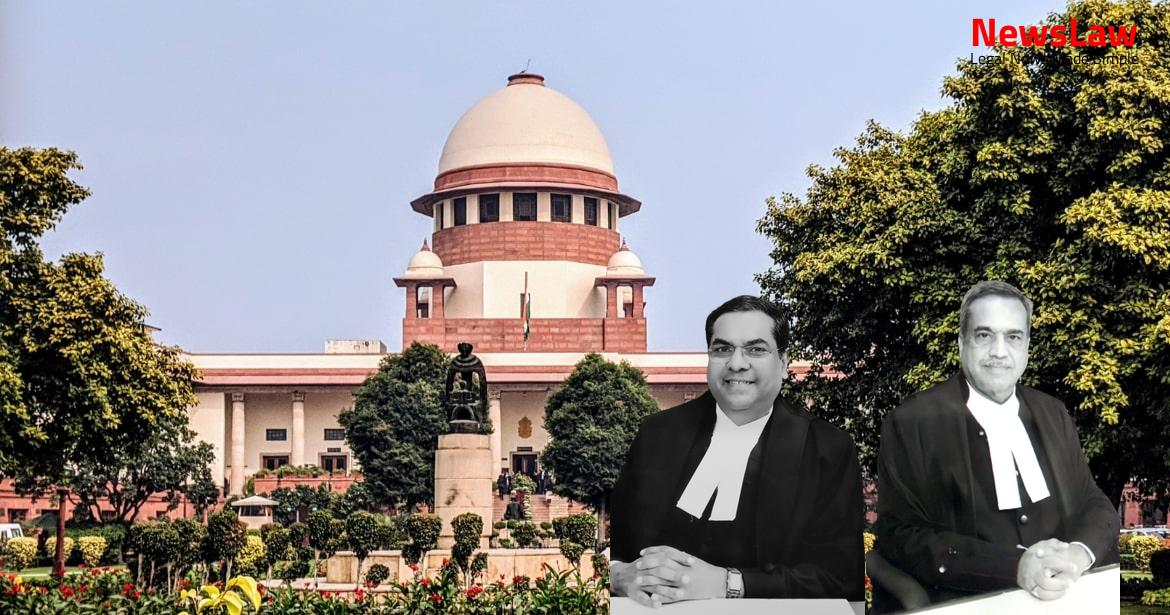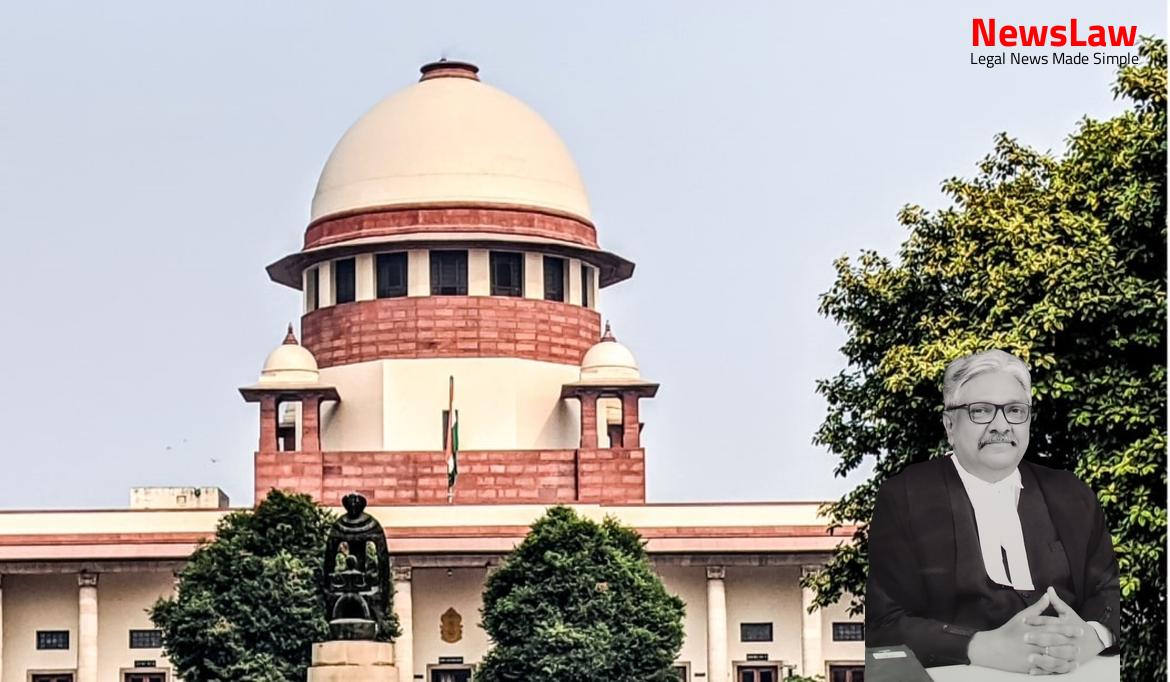Explore the complexities of rejecting OTS benefits in the banking sector through a detailed legal analysis. Discover how the court navigated through the RBI guidelines and the OTS scheme to make a decision. The case sheds light on the importance of adhering to eligibility criteria and the commercial wisdom of banks in determining loan settlements.
Facts
- The original writ petitioner’s application for benefit under OTS was rejected multiple times by the Bank.
- The Bank declared the loan account as ‘NPA’ and initiated proceedings under the SARFAESI Act.
- The original writ petitioner deposited Rs. 60 lakhs to come out of NPA status.
- The Bank argued that the loan amount could still be recovered through auctioning of mortgaged property.
- The original writ petitioner filed a fresh writ petition seeking relief under the OTS Scheme.
- High Court disposed of the writ petition
- Directed the Bank to consider the grievance of the original writ petitioner
- To decide her representation dated 22.07.2019
- Afforded due opportunity of hearing to the petitioner
- Decision to be made expeditiously, preferably within four weeks
Also Read: Upholding Professional Standards in Legal Disciplinary Proceedings
Arguments
- The original writ petitioner’s application for grant of benefit under the OTS Scheme was rejected by both the Bank and the Settlement Advisory Committee.
- The Settlement Advisory Committee also rejected the writ petitioner’s application after hearing her case.
- The Bank is justified in refusing to grant the benefit under the OTS Scheme if there are chances of recovering the loan amount through other means.
- The writ petitioner made payments on other loan accounts but did not deposit any amount on the present defaulting loan account until a later date.
- The decision to reject the application for OTS was in line with RBI guidelines and the OTS Scheme.
- The High Court erred in issuing a writ of mandamus directing the Bank to consider the writ petitioner’s application for OTS, as it was not an absolute right.
- Legal counsel heavily relied on past cases to argue that mandamus for OTS cannot be issued under Article 226 of the Indian Constitution.
- It was concluded that the original writ petitioner was not eligible for the OTS benefit as per the criteria set by the RBI and the OTS Scheme.
- The original writ petitioner deposited more than 50% of the amount required under the OTS Scheme before her application was considered.
- The High Court directed the Bank to positively consider the original writ petitioner’s case for grant of benefit under the OTS Scheme.
- The rejection of the application for benefit under the OTS Scheme was deemed as malafide and arbitrary by the High Court.
- The Bank was accused of harassing the original writ petitioner and refusing to grant the benefit under the OTS Scheme with ulterior motives.
- The High Court’s writ of mandamus was upheld as the cheque for the amount was accepted by the Bank, yet the benefits were not granted.
- The eligibility criteria mentioned under the OTS Scheme was highlighted as relevant in the proceedings.
Also Read: Curbing Fraudulent Claims: Court’s Legal Analysis
Analysis
- The High Court observed that the pending SARFAESI Act proceedings for seven years and the Bank’s inability to recover dues makes the hope of recovery seem illusory.
- The High Court’s conclusion lacked material support on record, despite the potential for full loan recovery through property auction.
- Granting OTS benefits to dishonest borrowers who can repay in full undermines the Bank’s recovery efforts.
- Guidelines by the Reserve Bank of India emphasize maximum recovery of non-performing assets through the revised OTS scheme.
- Availability of OTS benefit is subject to meeting eligibility criteria and not a guaranteed right for borrowers.
- The Settlement Advisory Committee plays a crucial role in evaluating applications for OTS benefits based on recovery possibilities and borrower’s financial status.
- The Bank is justified in refusing OTS if the borrower can fully repay through property auction or personal funds.
- High Court’s mandamus for OTS grant can’t be enforced, as each case requires the Bank’s commercial wisdom for decision-making.
- Ineligible defaulters for OTS include willful defaulters and those incapable of repaying after deliberating avoiding installments.
- Approval authority for settlements varies based on loan amounts, highlighting the importance of responsible decision-making by the relevant bank committee.
- High Court exceeded jurisdiction by issuing writ of mandamus in this case
- Appellant-Bank was directed to consider/grant OTS to original writ petitioner
- High Court’s decision was deemed a material error
Also Read: Legal Analysis on Consideration of Additional Marks for NCC Certificate in Recruitment Case
Decision
- Costs waived in the case
- Penal interest, legal expenses, and other expenses also waived
- High Court judgment and order found unsustainable and quashed
- The appeal is allowed without deviation from policies
Case Title: THE BIJNOR URBAN COOPERATIVE BANK LIMITED Vs. MEENAL AGARWAL (2021 INSC 899)
Case Number: C.A. No.-007411-007411 / 2021



